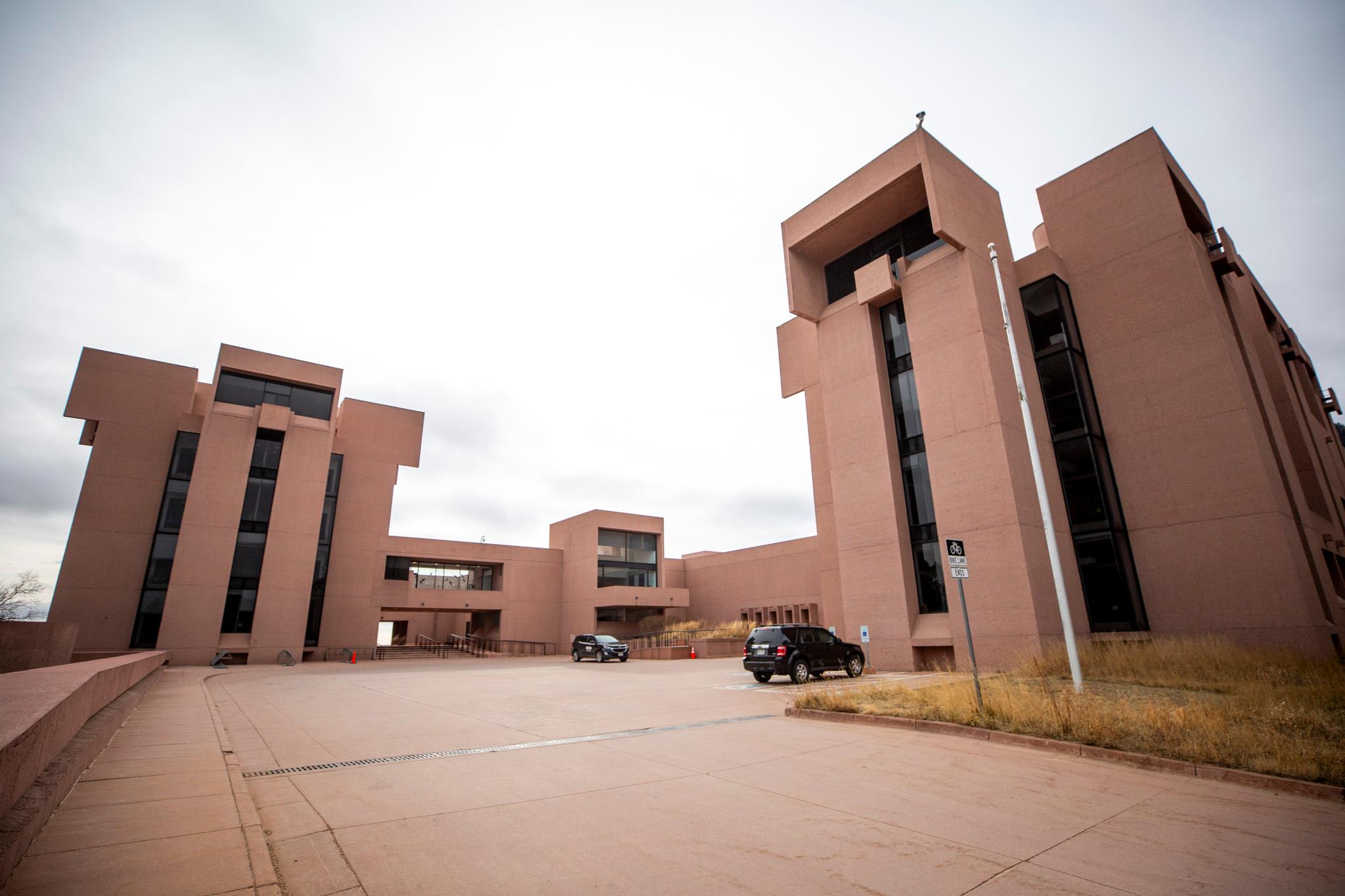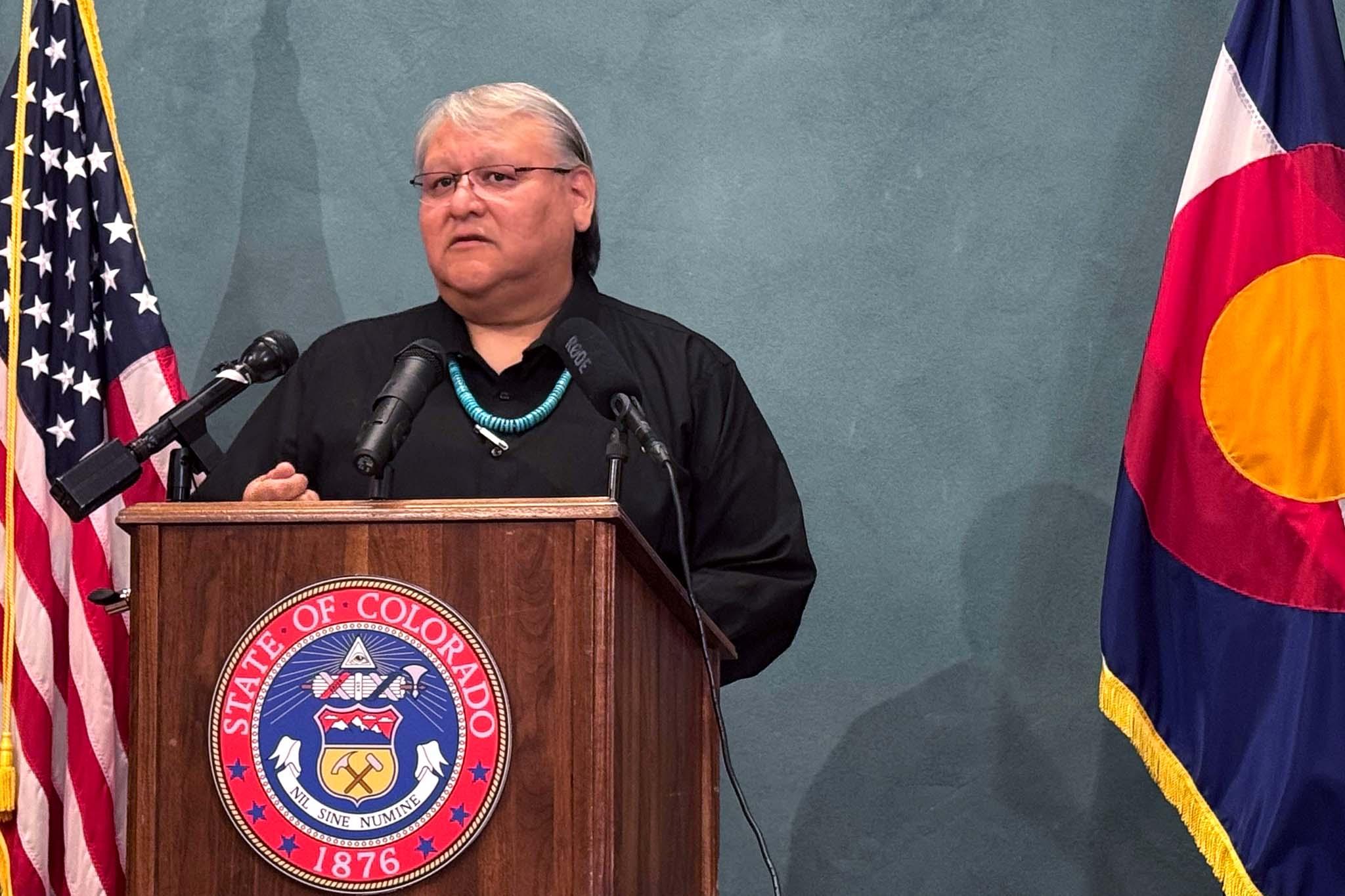
One of Colorado’s most challenging ski resorts could be without its typical ski patrollers come opening day unless a stalemate over wage increases is broken by Dec. 6.
The Telluride Professional Ski Patrol Union has unanimously voted to authorize a strike if negotiations remain deadlocked. The union and the mountain are set for negotiations on Tuesday and in early December to reach a deal, said union president Graham Hoffman.
“It's looking bleaker and bleaker. We still maintain a shred of hope, but with the signs and indications that we've gotten in just the last week-and-a-half or two weeks, it really doesn't seem like the company is preparing to offer us a contract that's going to secure the votes necessary to ratify that,” Hoffman said.
Hoffman said the union’s main request is a pay raise for patrollers that would bring them in line with other, comparable mountains as well as make up for lags in pay increases, historically. That number is about 30 percent. The patrol is also looking for a health insurance stipend for patrollers who do not receive health care through the resort.
A spokesperson for the resort said in a statement the pay increase is “not feasible.”
“Telluride's other teams also perform essential, difficult, and often dangerous work, including snowmaking crews, overnight groomers, lift maintenance, and lift operations, but the Resort cannot pay them misaligned wages. It is not fair to create a special compensation category for this one group under the threat of a strike,” the statement read.
Telluride argues that patrollers make wages comparable to Park City and Breckenridge, something the union disputes.
“Our entry-level wages are aligned with Park City following settlement of their strike and are equal to Breckenridge. It is important to note that both of these resorts serve far more skiers than Telluride, because they are not remote. Breckenridge is the same size as Telluride, but enjoys three times the number of skier days,” Telluride Ski Resort said in their statement.
Hoffman said the Park City comparison is incorrect and something the union had already brought up with a mediator in negotiations. Further, while a mountain like Breckenridge sees more skiers, Telluride has a high percentage of challenging terrain that requires greater institutional knowledge.
In the spring, the resort opens skiing to the 13,300-foot Palmyra Peak, which requires a 90-minute hike from the nearest lift. Hoffman said the mountain has around 260 distinct avalanche paths that need to be patrolled and the ski patrol throws more than 2,000 hand-charged explosives each season as a part of avalanche mitigation.
“The North San Juans are uniquely dangerous every single year and we have quite an extensive avalanche mitigation program, which is again, also complex in its variety and the different ways that these trigger points on the different slopes are loading or not loading and so much of these advanced paths, again, that knowledge of where to put that explosive can only be learned. It can't be shown, you can't read it in a book,” Hoffman said.
The ski patrol scheduled a practice picket for early this week in anticipation of a work stoppage. The resort, meanwhile, has posted ski patrol job openings that note the possibility of a strike.
“We are currently accepting applications for reliable, skilled, ski patrol professionals to join our team on a temporary basis to ensure continued operations and as a precautionary measure due to a potential labor dispute with the Communication Workers of America Local 7781, United Mountain Workers,” the posting says.
The listed pay range is for $24.50 to $37.50 per hour.
“It's one thing to have a contingency plan, and it's quite another to post on the website that they're hiring for ski patrol at wages that we're seeking for a temporary basis in case of a labor shortage,” Hoffman said.
The health care stipend request has become more salient in recent weeks because of the anticipated rise in insurance premiums for plans purchased on the Affordable Care Act health exchange. A tax credit that lowered those costs is expiring, which will lead costs to jump by hundreds of percentage points in some areas.
The resort said it will continue to negotiate with the ski patrollers ahead of the Dec. 6 opening date.
“We have deep respect for our Ski Patrol and recognize their critical role in keeping the mountain safe. Our goal is to reach a fair and equitable agreement—one that respects our patrol, is sustainable long-term, and protects the jobs and livelihoods of all employees who make this resort possible.”
CPR News Western Slope Reporter Stina Sieg contributed to this story.








